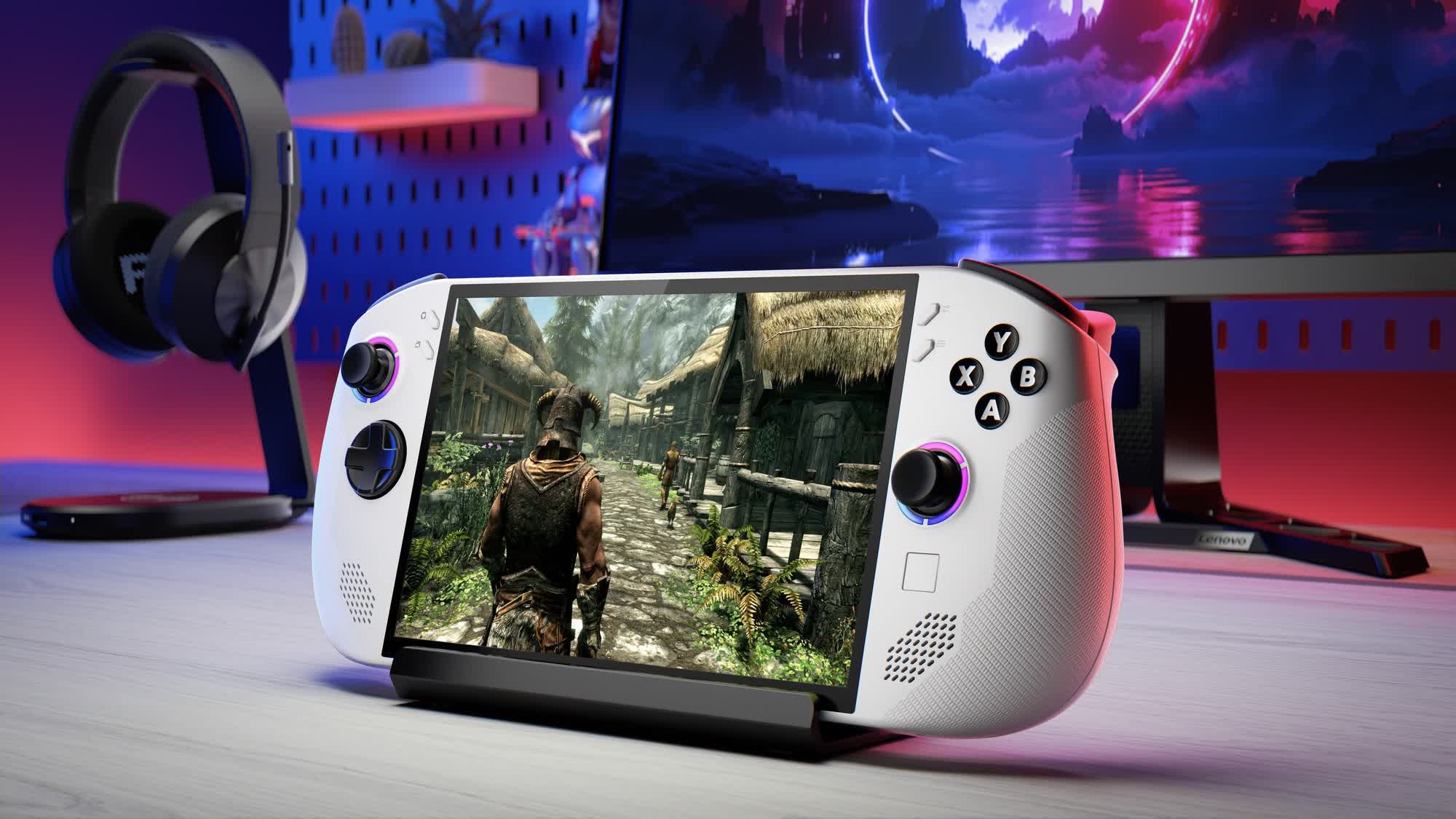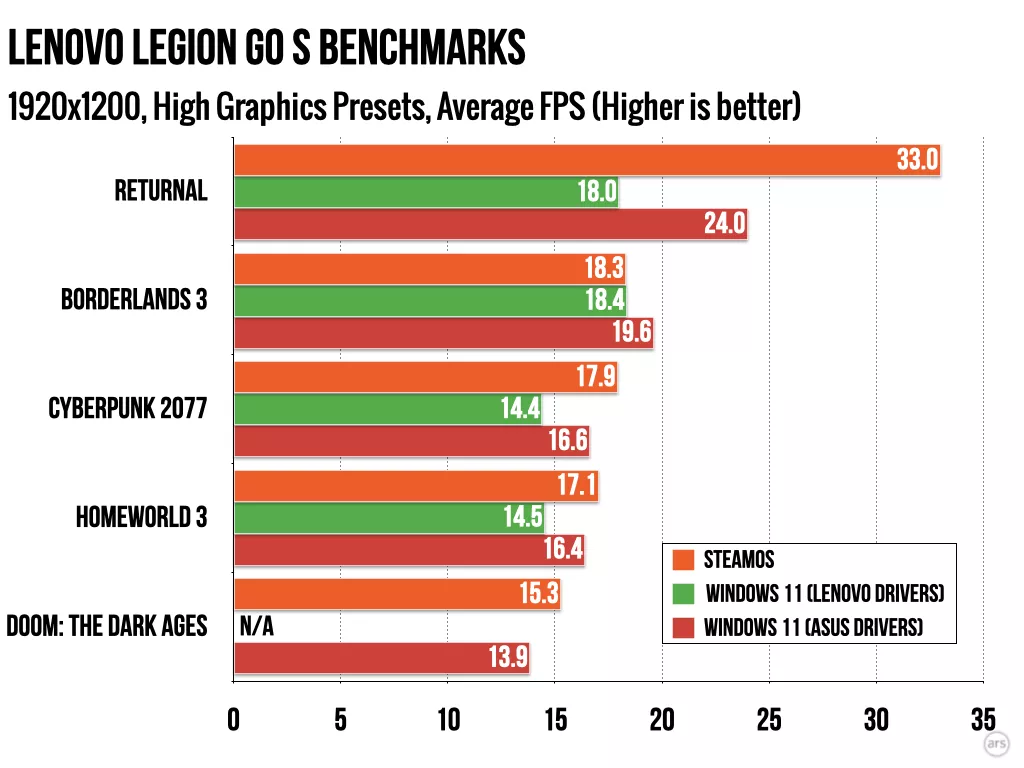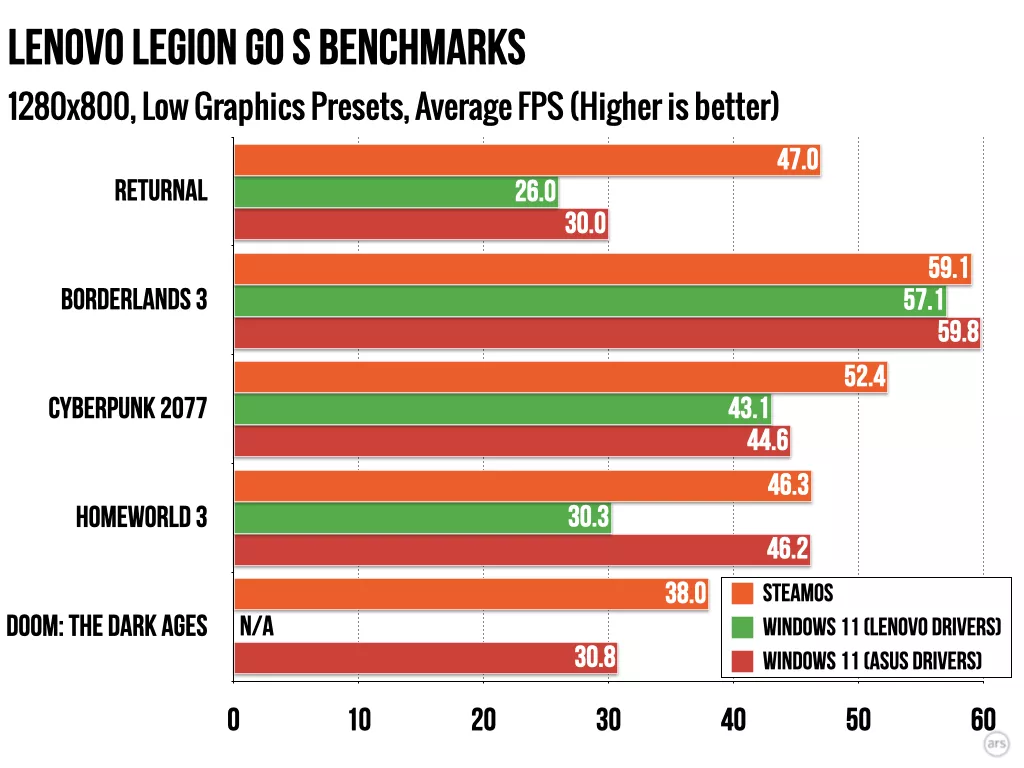That's called progress: SteamOS started life as a lightweight Linux-based system built for Valve's Steam Machines that never really picked up steam (pun intended). Now, it powers the Steam Deck and various other handhelds. New benchmarks show that the gaming OS outperforms Windows 11 on similar hardware.

A recent Ars Technica report tested five demanding PC games on Lenovo's Legion Go S handheld, running both Windows 11 and the latest SteamOS. In most cases, SteamOS delivered smoother gameplay and higher frame rates.
That's a significant change from Valve's early Steam Machines era, when the Linux-based OS often lagged behind Windows because of immature drivers and software. This time, four of the five games ran faster on SteamOS – sometimes by a substantial margin. In one case, playing Returnal at 1920×1200 on "High" settings, SteamOS held a steady 33 frames per second, while Windows barely managed 18 FPS with Lenovo's official drivers.
Part of that advantage comes from Valve's Proton compatibility layer, which translates Windows game code into Linux instructions. Proton and the SteamOS drivers have benefited from years of updates to help Windows games run efficiently. Another factor is SteamOS' streamlining and focus on doing one thing – running games – unlike Windows, which often runs many background processes.
As you can see from the graphs (above and below), the big takeaway here is that if you must use Windows 11, you're better off sideloading Asus drivers than sticking with Lenovo's stock set.
Ars also noted that Windows gaming performance could be improved by manually installing newer, unofficial AMD drivers – though most users wouldn't bother.
"Sideloading the updated Asus drivers showed a noticeable improvement in Windows performance across all tested games and even brought Homeworld 3's 'Low' graphics benchmark test to practical parity with SteamOS," Ars wrote.
However, even with the manually installed drivers, SteamOS still came out on top.
Of course, Windows still enjoys much wider game compatibility. Many games simply won't run on SteamOS without workarounds, and most manufacturers design PC hardware with Windows in mind. However, on a handheld like Lenovo's $599 Legion Go S – sold separately with either SteamOS or Windows – buyers may appreciate that SteamOS offers a smoother experience out of the box at a lower price.
Gamers once dismissed SteamOS as an underdog, incapable of competing with the more dominant bloatware out of Redmond. However, Valve's sustained work on Linux gaming is paying off. Ars Technica's tests suggest that handheld gamers willing to embrace SteamOS could enjoy better game performance – with no tweaking required.
New benchmarks show SteamOS outperforming Windows 11 on Lenovo's handheld PC

